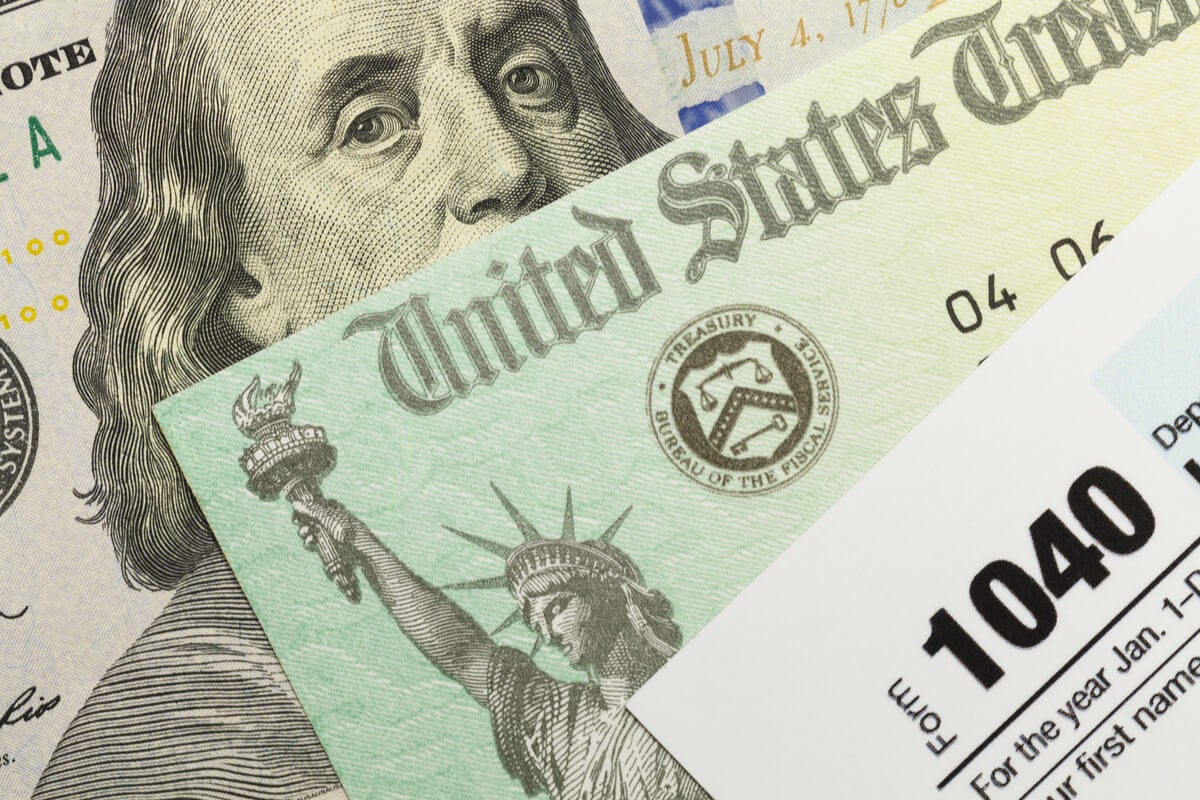
5 Factors that Could Impact Your 2020 Tax Filing
3/16/2021

The year has been filled with many twists and turns, and the events of 2020 have likely affected your finances. While some legislative efforts may be helpful in times of crisis, it’s important to read through the fine print and consider how these changes could impact your tax filings in 2021.
STIMULUS PAYMENTS
Did you receive a $1,200 ($2,400 for couples) stimulus payment in 2020? Some individuals wonder whether they’ll need to claim that money as taxable income. But there’s good news: a stimulus payment is not considered income, and you won’t owe taxes on it, so it will neither reduce your refund or increase how much you owe when filing your 2020 tax return, nor will it push you into a higher tax bracket.1
UNEMPLOYMENT PAYMENTS
Millions of Americans in 2020 suddenly found themselves filing for unemployment due to COVID-19. Some experienced a drop in income while others actually made more money as a result of the additional $600 that was added to weekly unemployment benefits as part of the CARES Act. Unlike stimulus checks, however, any unemployment payments you receive are subject to federal income taxes and state taxes when applicable.2
TAX-DEFERRED CONTRIBUTIONS
The IRS announced that in 2020, employee contribution limits for those who participate in a 401(k), 403(b) and some other types of plans increased from $19,000 to $19,500. Those over age 50 can contribute up to $6,500 more as part of a catch-up contribution, which is $500 more than in 2019.3 While IRA contribution limits did not change for 2020 ($6,000 plus $1,000 for those 50 and older), you may be able to receive an additional tax deduction on your IRA contribution even if you contributed the maximum amount to your employer’s retirement plan.
INVESTMENT WITHDRAWALS
If you experienced adverse financial consequences as a result of the coronavirus in 2020, you may have qualified for — and taken advantage of — a distribution from an eligible retirement fund in 2020. The good news is that you don’t have to pay the 10% additional tax on early coronavirus-related distributions. The distribution will be taxable, however, and can be spread out over three years instead of all at once. You also have the option to repay all or part of the amount within three years so you don’t owe federal income tax on the distribution.4
REQUIRED MINIMUM DISTRIBUTIONS
Required minimum distributions (RMDs) from your qualified accounts begin once you reach age 72 (previously 70 1⁄2 prior to the SECURE Act). For 2020, RMDs were waived for IRAs and defined contribution plans such as 401(k)s and 403(b)s. If you took an RMD, those withdrawals will typically be included in your taxable income. You may still have time to redeposit an unwanted RMD to avoid the taxation.5 Be sure to consult with a tax professional to fully understand your options and any tax implications.
Managing your financial future can be tough enough without adding the uncertainties of global events, changing legislation and confusing tax laws. Connect with a financial professional to help guide you in the right direction, and consult with a tax professional to ensure you cover all the bases.
A financial professional is here to help.
Source:
1. MarketWatch.com, Do I have to pay back my $1,200 stimulus check? Don’t fall for these 5 myths about the stimulus payments, May 16, 2020
2. CNBC.com, Here’s what you need to know about paying taxes on unemployment benefits, May 18, 2020
3. IRS.gov, 401(k) contribution limit increases to $19,500 for 2020; catch-up limit rises to $6,500, November 6, 2010
4. IRS.gov, Coronavirus-related relief for retirement plans and IRAs questions and answers, July 30, 2020
5. IRS.gov, IRS announces rollover relief for required minimum distributions from retirement accounts that were waived under the CARES Act, June 23, 2020
Representatives are registered, securities sold, advisory services offered through CUNA Brokerage Services, Inc. (CBSI), member FINRA/SIPC, a registered broker/dealer and investment advisor, which is not an affiliate of the credit union. CBSI is under contract with the financial institution to make securities available to members. Not NCUA/ NCUSIF/FDIC insured, May Lose Value, No Financial Institution Guarantee. Not a deposit of any financial institution.
CBSI-3211156.1-0820-0922
Related Resources
-
Read Tips To Increase Your Tax Refund 
-
Read Tips For Filing Your Taxes 
Tips For Filing Your Taxes
-
Read Tax Refund Frequently Asked Questions 
Tax Refund Frequently Asked Questions

